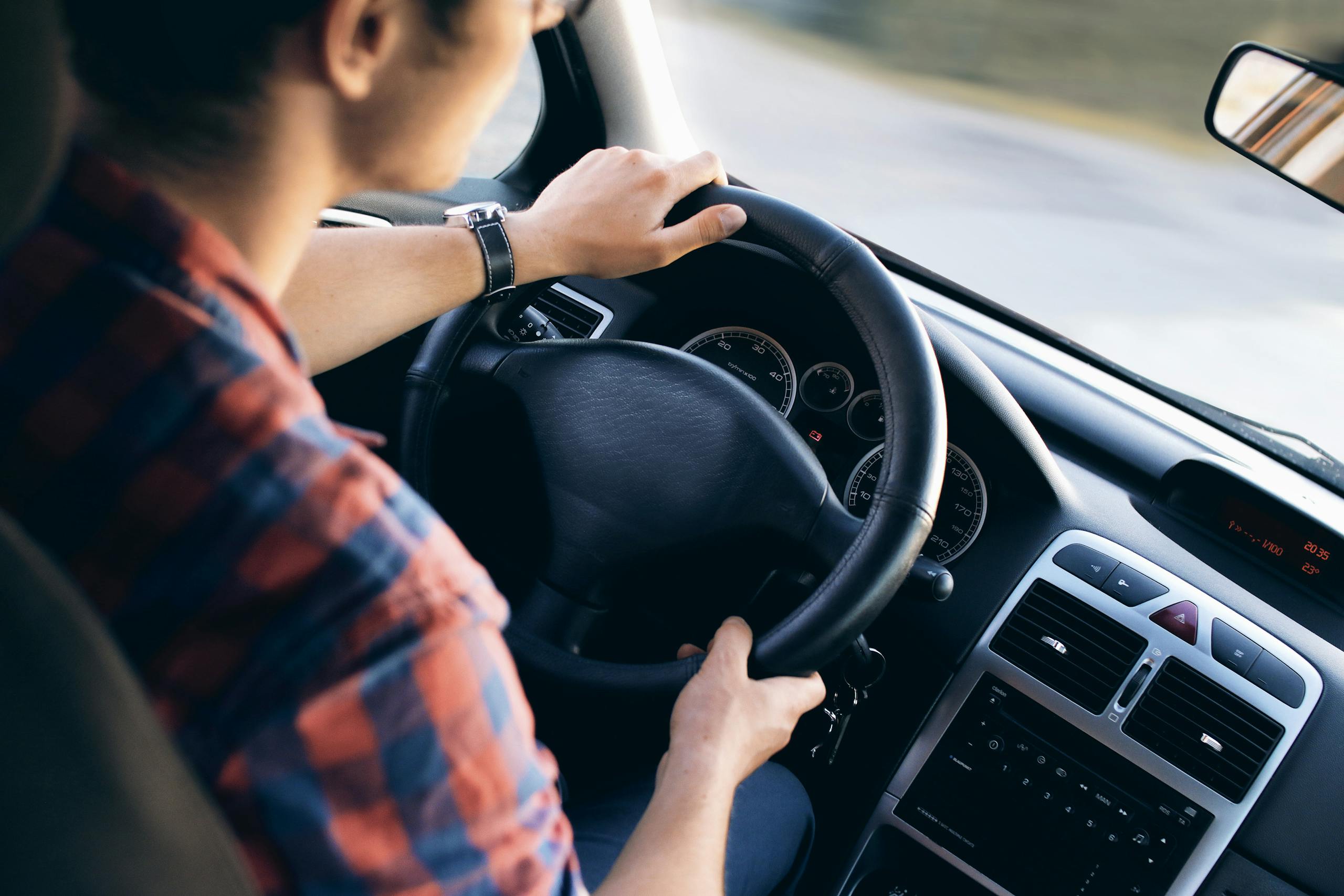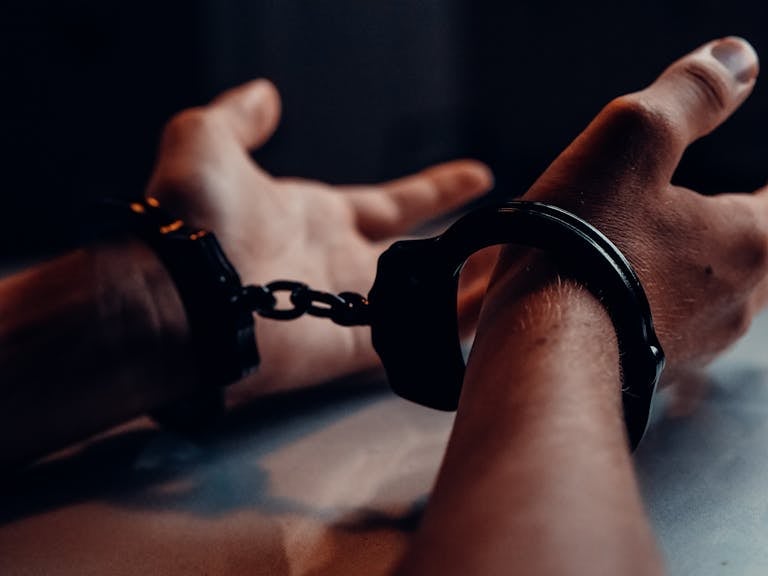Is Driving Without a License a Felony? the Legal Consequences in 2024
Meta Description: Discover the legal implications of driving without a license, including potential felony charges. Learn about varying state laws, consequences, and essential steps to protect your rights.
Introduction
Driving is an everyday activity for millions, but what happens when you get behind the wheel without a valid license? It’s a situation more common than you might think, and the consequences can be severe. Let’s dive into this complex issue and uncover some eye-opening statistics:
- According to the National Highway Traffic Safety Administration (NHTSA):
- In 2022, approximately 11% of drivers involved in fatal crashes were operating without a valid license
- Unlicensed drivers are involved in 20% of all fatal crashes
- A study by the AAA Foundation for Traffic Safety found:
- About 20% of fatal crashes involve at least one driver who is not properly licensed
- Unlicensed drivers are 1.5 times more likely to be involved in a fatal crash compared to licensed drivers
- The Insurance Research Council reports:
- Approximately 12% of drivers, or about one in eight, are uninsured
- Many of these uninsured drivers also lack valid licenses
These statistics paint a concerning picture of the prevalence and dangers of driving without a license. But is it a felony? Let’s delve deeper into this critical question.
Is Driving Without a License Classified as a Felony?
Driving without a license is a serious offense, but its classification can vary depending on several factors. Let’s break down this complex issue:
- Definition of driving without a license: Driving without a license typically refers to operating a motor vehicle without a valid driver’s license. This can include never having obtained a license, driving with an expired license, or driving with a suspended or revoked license.
- Factors that can elevate driving without a license to a felony:
- Prior offenses: Multiple violations of driving without a license can lead to felony charges in some states.
- Causing an accident: If an unlicensed driver causes an accident, especially one resulting in injury or death, felony charges may apply.
- DUI/DWI involvement: Driving under the influence without a license can result in felony charges.
- Fraudulent use of a license: Using a fake license or someone else’s license can lead to felony charges.
- Aggravating circumstances: Such as fleeing from law enforcement while driving without a license.
- State-by-state variations in laws regarding driving without a license: Laws vary significantly by state. For example:
- In California, driving without a license is typically a misdemeanor, but can be charged as a felony for repeat offenders or if other serious violations occur simultaneously.
- In New York, driving without a license is usually a misdemeanor, but can be elevated to a felony if it’s a repeat offense within 18 months.
- In Texas, driving without a license is generally a misdemeanor, but can become a felony if it results in a serious accident or if the driver has multiple prior convictions.
- Federal law perspective on driving without a license: While driving laws are primarily governed by states, federal law can come into play in certain circumstances:
- Driving without a license on federal property can result in federal charges.
- Crossing state lines while driving without a license can potentially lead to federal charges, especially if other crimes are involved.
- Comparison of misdemeanor vs. felony charges for driving without a license: Misdemeanor charges typically result in fines, possible short-term jail time (usually less than one year), and potential license suspension. Felony charges can lead to significant prison time (often more than one year), heavy fines, long-term or permanent license revocation, and a felony record that can impact future employment, housing, and other aspects of life.
It’s important to note that while driving without a license is serious, it’s not automatically a felony in most cases. However, the circumstances surrounding the offense can quickly escalate it to felony status.
Examples and Scenarios of Driving Without a License
To better understand the complexities of driving without a license, let’s examine some real-world scenarios:
- Case study: First-time offense of driving without ever obtaining a license John, a 20-year-old college student, is pulled over for a routine traffic stop. He admits to the officer that he’s never obtained a driver’s license. In most states, this would likely be charged as a misdemeanor. John might face fines, and possible short-term jail time, and would be required to obtain a proper license before driving again.
- Driving with a suspended license due to unpaid traffic tickets Sarah’s license was suspended due to unpaid traffic tickets. She continues to drive to work, believing it’s a minor issue. When caught, she learns that driving with a suspended license can carry more severe penalties than simply not having a license. In some states, this could be charged as a felony, especially if it’s a repeat offense.
- Causing an accident while driving without a license Mike, driving without a license, causes a serious accident resulting in injuries. This scenario could easily lead to felony charges, especially if Mike was driving recklessly or under the influence. The combination of driving without a license and causing harm to others significantly increases the likelihood of felony charges.
- Providing false information or a fake license to law enforcement Lisa is pulled over and, fearing consequences, provides her sister’s driver’s license to the officer. This act of fraud, combined with driving without a license, could result in felony charges in many jurisdictions.
- Driving without a license as a habitual offender Tom has been caught driving without a license multiple times over the years. In many states, habitual offenders can face felony charges, even if each individual offense would typically be a misdemeanor.
These scenarios illustrate how circumstances can quickly elevate driving without a license from a misdemeanor to a potential felony. The specific charges and consequences can vary greatly depending on the jurisdiction and the details of each case.
Frequently Asked Questions about Driving Without a License
Let’s address some common questions people have about driving without a license:
- What’s the difference between driving without a license and driving with an expired license? Driving without ever having obtained a license is often treated more severely than driving with an expired license. However, both are illegal. An expired license might be viewed more leniently if it’s a short-term expiration and the driver has a history of maintaining a valid license.
- Can I be charged with driving without a license if I forgot it at home? In most cases, if you have a valid license but simply forgot to carry it, you won’t be charged with driving without a license. However, you may still receive a citation for failing to produce a license when requested. Many jurisdictions allow you to present your valid license at a later date to have the citation dismissed or reduced.
- How does driving without a license affect insurance claims? Driving without a license can severely complicate insurance claims. Most insurance policies require the driver to be legally licensed. If you’re in an accident while driving without a license, your insurance company may deny coverage, leaving you personally liable for damages.
- Can I be arrested for driving without a license? Yes, you can be arrested for driving without a license, although policies vary by jurisdiction. Some places may issue a citation and court summons, while others might arrest you on the spot, especially if there are other violations or if you’re a repeat offender.
- How long does a driving without a license charge stay on your record? The duration varies by state. In some states, it might stay on your driving record for 3-5 years, while in others it could remain for 10 years or more. If it results in a criminal conviction, especially a felony, it could permanently remain on your criminal record unless expunged.
- Can driving without a license lead to deportation for non-citizens? For non-citizens, especially those without legal status, driving without a license can potentially lead to immigration consequences, including deportation proceedings. This is particularly true if the offense is charged as a felony or if it’s part of a pattern of law violations.
Key Tips and Advice: What to Do If Charged with Driving Without a License
If you find yourself facing charges for driving without a license, here are crucial steps to take:
- Immediate steps to take following a traffic stop or arrest:
- Remain calm and cooperate with law enforcement. Being confrontational can worsen your situation.
- Exercise your right to remain silent beyond providing basic identifying information.
- Do not admit guilt or try to explain why you were driving without a license.
- If arrested, do not discuss your case with anyone in jail or during phone calls, which may be recorded.
- Contact a family member or friend who can help you arrange for legal representation.
- Importance of seeking legal counsel: Consult with an attorney experienced in traffic law as soon as possible. They can:
- Evaluate the circumstances of your stop and arrest for any procedural errors.
- Advise you on the potential consequences based on your specific situation and local laws.
- Represent you in court and potentially negotiate for reduced charges or alternative sentencing.
- Guide you through the process of reinstating your license or obtaining a license if you’ve never had one.
- Gathering evidence and documentation: Collect any relevant documents that might help your case, such as:
- Proof of a valid license if you have one but weren’t carrying it.
- Documentation showing you were in the process of obtaining a license.
- Medical records if a health issue prevented you from renewing your license.
- Evidence of any emergencies that might have necessitated driving without a license.
- Understanding plea options and their implications: Your attorney may present various plea options:
- Pleading not guilty if you believe you have a strong defense.
- Considering a plea bargain for reduced charges, especially if it’s your first offense.
- Understanding the long-term implications of pleading guilty, including impacts on your driving record and insurance rates.
- Preparing for court appearances:
- Dress appropriately and arrive early to all court appearances.
- Follow your attorney’s advice on how to address the court.
- Be prepared to show steps you’ve taken to rectify the situation, such as enrolling in driver’s education courses or initiating the process to obtain a valid license.
- Exploring options for license reinstatement or obtaining a new license:
- Research your state’s requirements for license reinstatement or obtaining a new license.
- Complete any required driver’s education courses or tests.
- Be prepared to pay fines and reinstatement fees.
- Consider restrictions you may face, such as the need for an ignition interlock device or limited driving privileges.
Remember, the specific steps and options available to you will depend on your individual circumstances and local laws. Always consult with a legal professional for advice tailored to your situation.
How to Avoid Driving Without a License Charges
Prevention is always better than dealing with the aftermath of driving without a license. Here are comprehensive strategies to avoid such charges:
- Understand and comply with license renewal requirements:
- Keep track of your license expiration date. Many states offer email or text reminders.
- Begin the renewal process well before your license expires.
- Be aware of any specific requirements for renewal, such as vision tests or additional documentation for older drivers.
- If you’ve moved, ensure your address is updated with the DMV to receive renewal notices.
- Address suspensions or revocations promptly:
- If your license has been suspended or revoked, take immediate steps to understand the reason and requirements for reinstatement.
- Complete any mandated courses, pay fines, or fulfill other obligations to regain your driving privileges.
- Consider seeking legal advice if you believe the suspension or revocation was unjustified.
- Alternatives to driving when you don’t have a valid license:
- Use public transportation where available.
- Utilize ride-sharing services or taxis.
- Arrange carpools with licensed drivers.
- Consider bicycle or pedestrian options for short distances.
- Explore work-from-home options if commuting is a primary reason for driving.
- Educate yourself on local driving laws and requirements:
- If you’re new to a state, research its specific requirements for obtaining a license.
- Be aware of graduated licensing systems for new drivers, especially teenagers.
- Understand the implications of driving with out-of-state licenses, particularly for college students or temporary residents.
- Maintain proper documentation:
- Always carry your physical license when driving.
- Consider keeping a photo of your license on your phone as a backup, though this may not be legally sufficient in all situations.
- If you have a valid license but lost it, obtain a replacement immediately.
- Address medical conditions that might affect your ability to drive:
- If you have a medical condition that could impact your driving, consult with your doctor and the DMV about any necessary restrictions or special requirements.
- Be proactive about vision tests and hearing checks, especially as you age.
- For international visitors or new residents:
- Research and comply with laws regarding international driver’s licenses.
- Understand the time frame for obtaining a local license after moving to a new country or state.
- Emergency preparedness:
- While it’s never advisable to drive without a license, understand your state’s laws regarding true emergencies.
- Have a plan in place for emergencies that doesn’t involve you driving without a license, such as designated emergency contacts who can drive.
By following these guidelines, you can significantly reduce the risk of facing charges for driving without a license. Remember, the inconvenience of finding alternative transportation is far less severe than the potential legal consequences of driving without a valid license.
Conclusion
While driving without a license is not automatically a felony, it’s a serious offense that can escalate to felony charges under certain circumstances. The complexity of laws surrounding this issue underscores the importance of maintaining a valid license and understanding your local regulations.
If you find yourself facing charges for driving without a license, remember that the consequences can be far-reaching, affecting not just your ability to drive, but potentially your employment, housing, and even immigration status. It’s crucial to address the situation promptly and seek professional legal advice.
[If you’re facing charges related to driving without a license, don’t navigate the legal system alone. Consider using our partner service LegalMatch to find experienced traffic law attorneys in your area.]Remember, the best approach is always prevention. Stay informed about your license status, renew on time, and never get behind the wheel without proper authorization. Your future self will thank you for the peace of mind and clear driving record.







